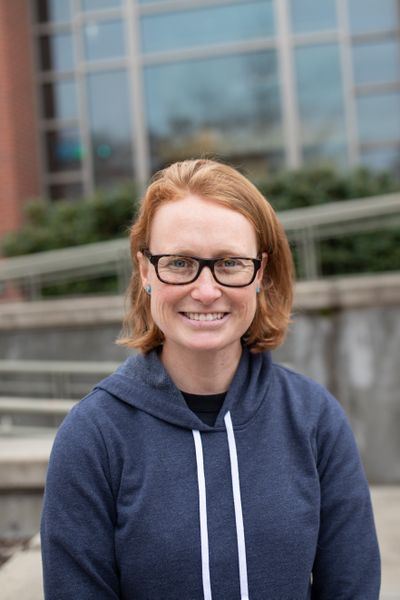This column reflects the opinion of the writer. Learn about the differences between a news story and an opinion column.
Faith and Values: What children can teach us about blind faith and the power of ‘Why?’

One of my friend’s kids is at a stage I very much appreciate: the trust, but verify phase.
“Eat the rest of your dinner and you can watch a little bit of a movie before bed,” Liz will tell her 4-year-old son.
“With who?” he’ll ask.
Children aren’t afraid of questions.
My 5-year-old goddaughter recently asked what BLM means, because the house next door has a sign posted with the three letters crossed out.
When her moms explained it to her, and why the neighbor’s sign was hateful, she asked, “Why isn’t our neighbor kind to everyone? He shovels the sidewalk for everyone.”
Kids observe, and they wonder, and they seek understanding.
I hope this means they’re all journalists in the making, and that they’ll hold onto that curiosity.
Inquiry is holy.
Blind faith is not.
Blind faith is backing Russia’s invasion of Ukraine simply because televangelist Pat Robertson proclaimed that Putin is “being compelled by God.”
Blind faith is supporting the 150 anti-LGBT laws that have been introduced so far this year because you want to believe conservative politicians and faith groups when they say they can legislate gay people away.
Blind faith is being antic about critical race theory, even though it’s not taught in our school systems.
Blind faith is applauding Texas’ and Idaho’s abortion bans because some say abstinence-only education will solve the problem of unplanned pregnancies.
I find myself wondering why people stop querying and just start accepting what they’re told at face value. Is it driven by fear? Laziness? Apathy? Social media?
Having grown up in a cult, the unquestioning belief in something – even when it’s unreasonable or morally wrong – is something I’m too familiar with. And I’m losing patience for it.
We can all take a page from the kids in our lives and start asking “why?” a lot more.
We don’t have to all agree. Diversity of opinion is good. I just hope each of us investigates and understands why we vote and believe the way we do. In that seeking, we will get to know ourselves better, and hopefully others.
It’s hard to disrespect a person whose deep convictions come from deep exploration.
Some of the answers we seek will be in books, or journals or articles. Some will come from our teachers. Other determinations, though, come through discernment.
I love the story from the Kālāma Sutta, a discourse of the Buddha. In the text, the Buddha comes to a town and the inhabitants (the Kalamas) ask him for advice. They tell him many religious men have visited and pushed their doctrines upon them, while tearing down any doctrine that opposes their views.
They ask, “Which of these men speaks the truth?”
“It is proper for you, Kalamas, to doubt, to be uncertain …,” the Buddha responds. “Do not go upon what has been acquired by repeated hearing; nor upon tradition; nor upon rumor; nor upon what is in a scripture; nor upon surmise; nor upon an axiom; nor upon specious reasoning; nor upon a bias towards a notion that has been pondered over; nor upon another’s seeming ability; nor upon the consideration ‘The monk is our teacher.’ Kalamas, when you yourselves know: ‘These things are bad; these things are blamable; these things are censured by the wise; undertaken and observed, these things lead to harm and ill,’ abandon them.”
The Buddha is encouraging free thinking here and says it’s more than knowing right from wrong. One translator explained it this way, “The ability to question and test one’s beliefs in an appropriate way is called appropriate attention.”
I like that. May we all question and give appropriate attention to the values that influence us.
Tracy Simmons, a longtime religion reporter, is a Washington State University scholarly assistant professor and the editor of SpokaneFāVS, a website dedicated to covering faith, ethics and values in the Spokane region.